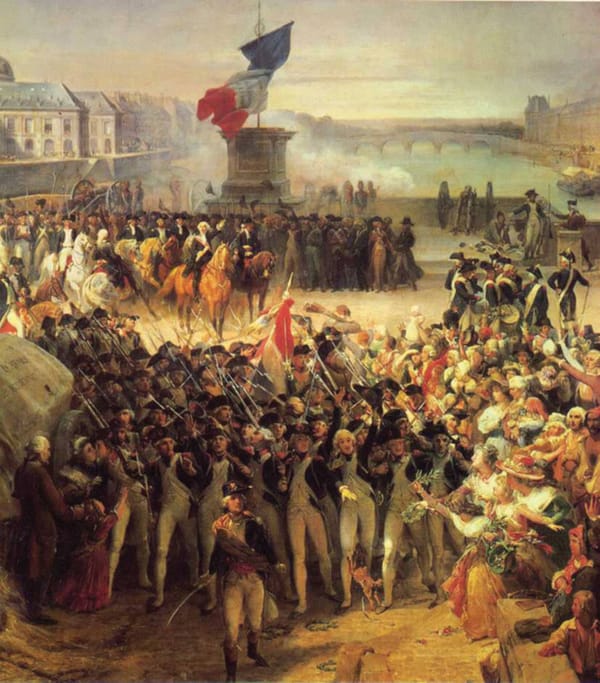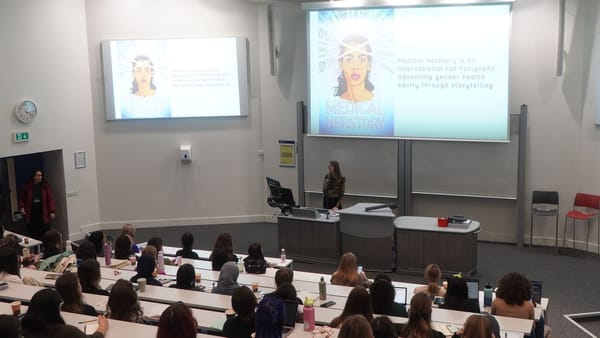Union does not support closure of Translation Studies Unit
Clarification sought on reason for closure. Union wants to know how students will be supported through their degrees. Union Council vote to oppose closure wins despite no sabbatical voting for it.

The Union opposes the closure of the Translation Studies Unit (TSU), following a vote at Union Council on Tuesday 12 February. The Union will also be seeking clarification on the reasons why the Unit will be closed and how the students will be supported in the completion of their studies; this is because College’s previous explanations have been vague. Council voted to both oppose the closure of the TSU and to seek clarity, despite all sabbatical officers either abstaining or voting against the motion. This increases pressure on the College, as an online petition has already received over 6000 signatures.
During the Union Council meeting there were two votes; the first was that the Union rejects the current approach to close the TSU and supports the campaign run by students to save the TSU; the second was that regardless of the outcome of the current consultation, the Union wants the College to say why the TSU is being closed and how the students will be supported. The first motion received 21 votes for, 4 votes against and 8 abstentions; the motion was therefore passed. The second motion also passed. Hence, the Union will be supporting the TSU students in their campaign to save the TSU.
The paper was presented by representatives of the TSU and the discussion was lengthy. The Management Board, who are a decision making body composed of senior staff at Imperial College London, made the decision to close or rehouse the Unit. The reason for the decision is unclear to students, who have been informed that the teaching quality is “high” in the department and has been evaluated as an “excellent” department by other universities. Furthermore, the TSU is a profitable department. Without proper supervision in place, there could also be implications for PhD students outside the TSU as students from other departments also use the TSU to translate papers. The MSc offered by the department is the only Masters programme in the UK that focuses on translation within “scientific, technical and medical” areas.
The debate started with Michael Foster, Council Chair, reminded everyone “the effect on current students” is what can be discussed, and the impact to future students or staff is not the remit of the Council. The representatives of the TSU commented that they do not know how they will be able to continue without supervisors, College responded that thishas not been decided yet. Other comments made by the TSU include the fact that the decision about Strategy was before a big strategic review. It was then the suggested the student input that is being asked for in a survey about strategy for Education and Student experience has no use, as the decision to close the TSU has already been passed.
A TSU representative also commented that their degree was devalued as a result of this, putting their careers in jeopardy and exposing them to the risk of losing their scholarships. Paul Beaumont, Union President, said there were “no facts” to back this up. Additionally, the TSU commented it “Seems like Debra [Humphris, Pro-Rector (Education)] has given us no options”. The representatives also said that they believed that it is “irresponsible to do a consultation now and not in the summer before [the College] enrolled us”.
During the meeting it was also noted that History of Science, which was also moved, had a similar situation, where they were not given much information and moved without much consultation. However, that issue was never brought to Council.
Becky Lane, Deputy President (Welfare), cited the possibility of an unknown strategy and said that she “very strongly thinks forward planning and financial reasons” are the reason.
On the 18 December 2012, the Head of the TSU was informed “that the College Management Board has decided that TSU activities are not considered core to College strategy and that the Unit should be transferred to another institution. If this solution is not feasible then consideration will be given to discontinuing translation studies from the 1st October 2013.” Staff and students were also informed that there will be a 30 day consultation period for the staff from 18 January.
The TSU currently accommodates 96 students; 50 are MSc students, 22 are PhDs, 16 are UCL students and 6 are undergraduates.
The online petition has received over 6000 signatures, but more are still needed. The support has been on a Global level. Irene Ranzato, an English Translation teacher at Sapienza University in Rome commented that the TSU ay Imperial “is considered by teachers, researchers and students alike a fundamental point of reference for our studies. For those who study Linguistics and Translation, Imperial College is synonymous with Translation Studies.” Gianluigi Desogus, from Portugal enrolled in 2001, the year the MSc was launched; she said “I’ve been working in translation ever since, initially in-house and as a freelancer later. I couldn’t have done it without the skills I picked up thanks to this excellent course. I’d be extremely sad to see the MSc leave Imperial College’s exciting environment. Please reconsider your decision!” There has also been support from across the Atlantic, Sonia Murray from California emphasised “scientific progress is essential to the well-being of humans everywhere, but communicating the impact of discoveries in a way that is easily grasped by the public at large is often difficult for scientists, even in their own language. The ability to transmit new knowledge is a critical ingredient of humanity’s progress. We need translators with a focus on technical and scientific areas to ensure the transmission of accurate scientific information, which has the power to generate new discoveries.”
College have no updates on the situation until the end of the consultation period.






